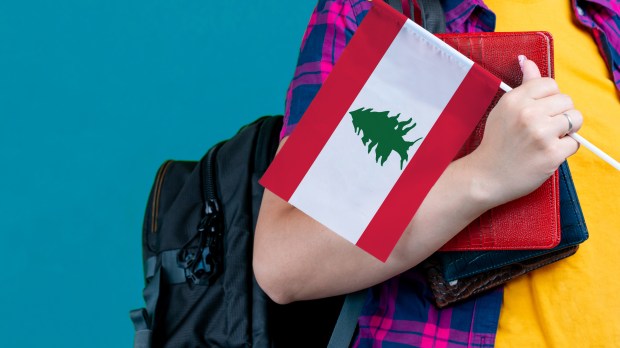Pope Francis received for the second time at the Vatican the head of the Lebanese government Najib Mikati on March 16, 2023. The two men met privately for just under half an hour during the visit, which took place against a backdrop of Lebanon’s economic, social and political crisis.
Prime Minister Najib Mikati, a Sunni Muslim, then met with Cardinal Pietro Parolin, Secretary of State, and Archbishop Paul Richard Gallagher, Secretary for Relations with States.
The exchanges were an opportunity for the Holy See to express its concern for the serious socio-economic crisis suffered by the Lebanese population, whose standard of living has collapsed in recent years.
The Holy See also noted concern about the institutional impasse in which the country finds itself, which urgently awaits the election of a new president of the Republic, according to the statement issued following the visit.
The country of the Cedars still does not have a President of the Republic since the departure of Michel Aoun last fall.
The Secretariat of State also reiterated the importance of the presence of Christians in Lebanon and in the entire Middle East, calling for “the strengthening of peaceful coexistence between Lebanese of different faiths in order to guarantee peace and stability in the entire region.”
In the eyes of Rome, Lebanon is a country that is crucial for the model of coexistence that it represents in the Middle East.
During the traditional exchange of gifts at the end of the private audience, the Prime Minister presented Pope Francis with a stone font topped with an image of Our Lady of Sorrows. The Pontiff presented his guest with a bronze work on the theme of love, representing a child helping another to get up, as well as documents from his magisterium.
It was the second time the two men met, after the audience granted to the Lebanese Prime Minister in November 2021. This new audience takes place as Lebanon remains mired in a serious social, economic, and political crisis. Poverty is widespread and United Nations experts consider the country of the Cedars a “failed state.”
Prime Minister Mohamad Najib Mikati has assumed executive power, but his prerogatives remain limited in the absence of a President of the Republic.
Since the end of President Michel Aoun’s term of office last October, the political parties have been unable to agree on a successor, who must be Christian. Eleven parliamentary sessions have already been unsuccessful. Last week, Lebanese Hezbollah announced its support for the candidacy of Maronite Sleiman Frangié.
The election of a new president is one of the conditions for Pope Francis to visit Lebanon. Last April, the then president Michel Aoun announced that the Pope would come to his country in June. The trip was postponed indefinitely.

